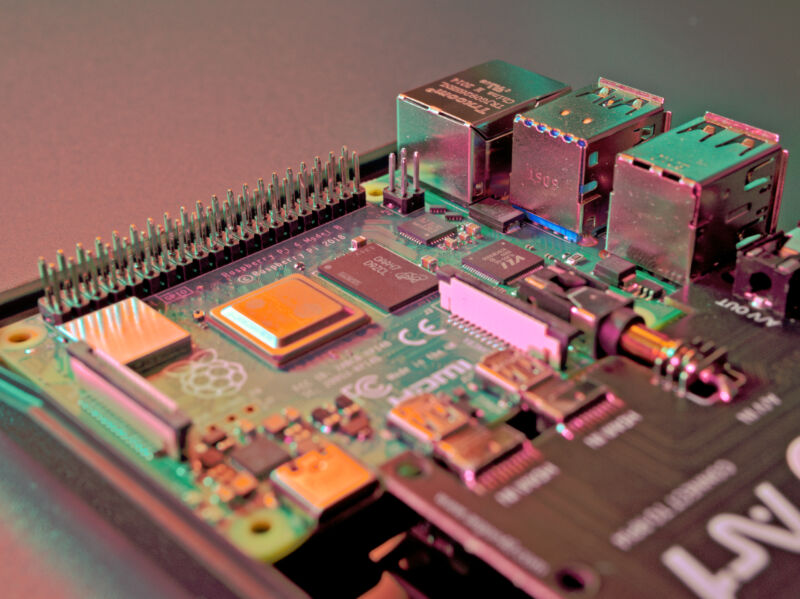
There hasn't been much good news involving Raspberry Pis lately, at least for those looking to buy. But the single-board system maker says to take heart. Individual units are heading out now, and more are coming soon.
In a "Supply chain update" blog post ("It's good news!"), CEO Eben Upton wrote that Raspberry Pi has "set aside a little over a hundred thousand units, split across Zero W, 3A+, and the 2GB and 4GB variants of Raspberry Pi 4, for single-unit sales." During the pandemic-spurred component shortage, most of the Pis produced every month were going to businesses, leaving those in need of one or two for a project refreshing rpilocator and cursing their timing. Zeros will start showing up first, then 3A+, then different models of 4.
Upton acknowledged this reality (and even linked the locator) and asked that people buy only from approved resellers and consider the Pico and Pico W lines for projects that might fit, as those lines remain strong. As of this morning, a few 3A+ and CM4 models showed an optimistic green on the rpilocator spreadsheet.
Raspberry Pi will continue to serve its commercial and industrial customers, Upton wrote, but will "make sure that inventory-building behavior which would otherwise prolong the shortage for everybody else can't take place." Meanwhile, Raspberry Pi will increase the percentage of boards designated for single-unit sales. With that change and future chip allocations, Upton expects that by the end of the third quarter of 2023, things will be back to how they were before the Great Pi Shortage, with "hundreds of thousands of units available at any given time."
Stock, but also small price increases
Raspberry Pi models have mostly kept their prices in place during the global chip shortage, at least at the suggested retail prices. The lower-memory Pi 4 was bumped up, along with a $5 nudge to every CM model. But with components continuing to get more expensive, Upton wrote, the Zero models have to increase as well—from $5 to $10 for a Zero and $10 to $15 for a Zero W (with wireless). On the bright side, though, customers should be able to order multiple Zero models again, assuming stock improves as planned in Q3 2023.
In the post comments, Executive Director of Communications Liz Upton responded to a commenter asking about stock of the Zero 2, saying, "Not yet, but it's on the horizon." Upton also noted, in response to another query about a Pi 4 with 8GB memory, "Chip allocations are coming in one by one. We know when we're getting them, so we can be confident that the supply will be there," but Raspberry Pi doesn't "have our hands on everything yet."
Recovering from the shortfall
Raspberry Pi's business may have kept busy with larger customers during the pandemic-fed chip shortage, but its reputation among individual customers has likely taken something of a hit. Having to search, overpay, or compromise for a tiny computer, one you might have been eager to tinker with during a moment's inspiration, certainly dampens enthusiasm. Some made a pivot to mini-PCs and used corporate thick/thin clients.
The hobbyist company itself suggested that the shortage was partially to blame for a recent controversy over its hiring of a former police officer as maker-in-residence. The UK-based officer, Toby Roberts, noted in a company blog post that he worked in surveillance for 15 years, "built stuff to hide video, audio, and other covert gear," and "used Raspberry Pi a lot in various police tactics over the years." There was, as you might imagine, some pushback from segments of the Pi community and others.
Liz Upton told Buzzfeed News she believes some of the vitriol directed at Roberts and the company stemmed from Pi shortages and the fact that people "were already cross."
reader comments
69